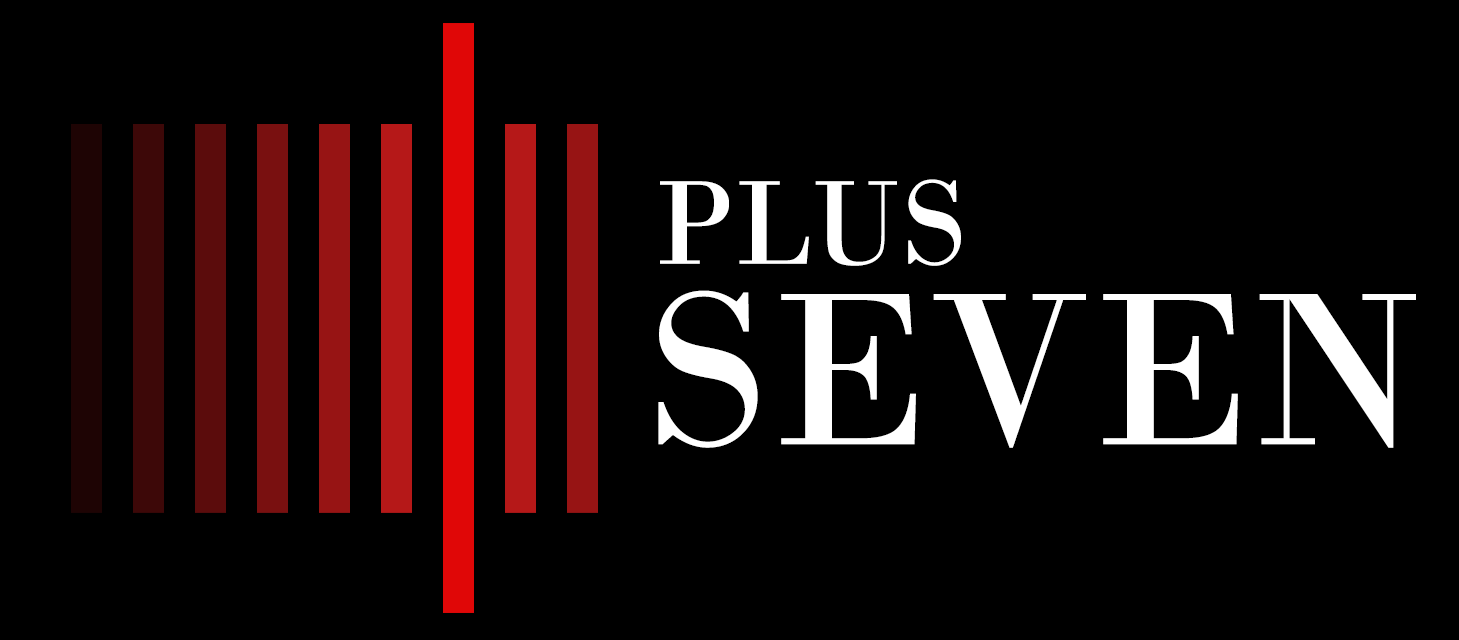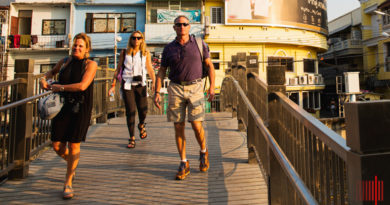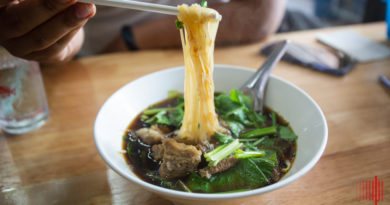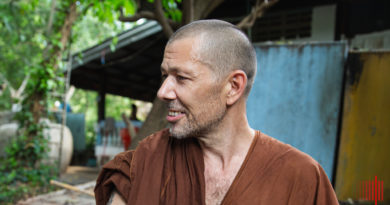Debunking Monking Part II: monk, drugs, Rock ‘n’ Roll
In the previous article, I discussed the impact on me of seeing Quang Duc on fire. Profound as that was, it was only a condition that subliminally prepped my way into Buddhism. It wasn’t a cause since I didn’t just drop everything and go on the strength of that. Why would I?
I had grown up in an atheist household, and I suppose that my parents believed in progress as the key to human happiness. Both individually and societally – be it economic, political, medical, technological, educational – whatever. They had grown up during World War 2, and one of my grandmothers had been a refugee. In their lifetime, the world saw the Nazis defeated, the National Health Service founded, smallpox eradicated, and the fall of the Berlin Wall. They didn’t want old superstitions, and life could be even better in the future if we kept working for that. For those in need of transcendent experience, we had the arts. What needs for spiritual comforts or hope of an afterlife?
As I grew older and began to think more for myself, I still saw no reason to bring religion to the table. The material world seemed more than enough. It was very kind to me, in fact. With no particular plan, I stumbled into a career in music. It was the 1990s – an exciting time for music, after the cultural desert of the 80s, when everything was tidy, bland and shiny, and pop-stars dressed like bankers. The strange, the difficult, the dirty, and the creative; all began to flourish again. Downloading hadn’t yet killed record sales, so there was still plenty of money around to fund all this delightful madness. Play the game of life and win, I thought, and I seemed to be on the winning side. I was happy, I supposed – optimistic, reasonably fulfilled, or at least very well entertained. I was making a living doing something I loved, and that didn’t require getting up early. So what messed it all up? Why am I now a nutter in an orange bedsheet?
Into the pit and out
Sorry to be predictable, but it was drugs. Clichéd as it sounds, I actually wasn’t, as you may have lazily assumed, a debauched Caligulan monster from the get-go. I was more the nerdy kind of musician, spending many solitary hours practising in my girl-free-zone of a bedroom, rather than the filth, the fury, and the champagne-filled jacuzzi. Not until my mid-twenties did I dip a toe in the water, but I made up for the lost time. I didn’t spend too long paddling in the shallows with kiddie, hedonistic party drugs before finding my way to the deep end with a fine and handsome cocaine habit. Then, since a diet of raw stimulants gets a bit nerve-wracking, I balanced things up with an equally impressive heroin habit.
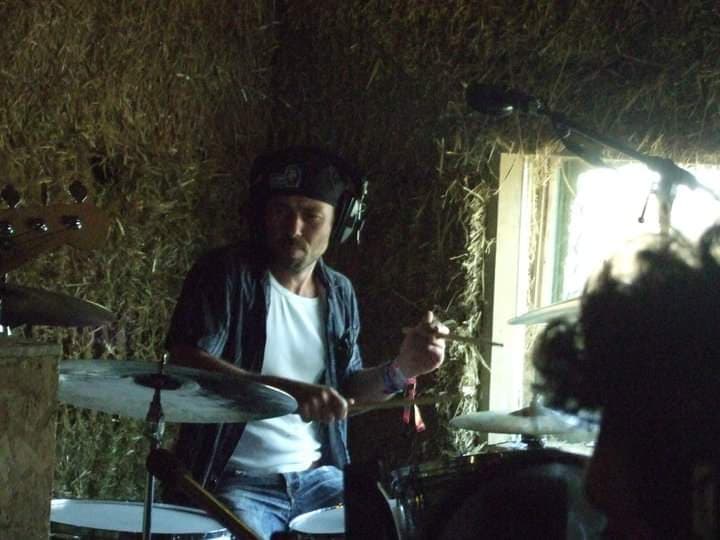
When you’ve got a life to demolish, these really are the power tools, so it took a mere three years to completely lay waste to everything. The music industry will tolerate that kind of nonsense to a greater extent than many other professions. So it’s a tribute to my single-minded dedication to mayhem that I managed to become a complete pariah in a relatively short time. I then had about a year at rock-bottom. Everything had ground to a halt. While I kept up some token activities, the honest truth is that I didn’t really do anything besides obtain and consume drugs. I could have easily continued the drift towards oblivion, but I had only just turned thirty. Some part of me remained that wasn’t quite ready to say: “well that was it, that was me.” So I started to wonder about possible solutions.
Method 1: Cold Turkey
The obvious one was to stop filling myself with noxious mind-bending chemicals. Seems eminently logical- what is the cause of a drug problem? Well, drugs, obviously! I would have to tough it out for a week or two, and then wait a while longer for everything to reset to “normal,” but it seemed perfectly doable. I didn’t consider myself a weak person; I could be determined about goals, and I was certainly motivated about this one.
And.. like nearly everyone, I collapsed rapidly, utterly, and humiliatingly. And again, when I tried again. Not that it was a complete waste of time, because I did learn something crucial. I learned that treating a drug-problem in isolation is futile and doomed to fail. A more fundamental restructuring is needed. That’s a very bold and categorical statement. Why would I say that?
Well, here’s my take on it. It’s entirely subjective, and I admit that I’m fleshing out some details now with the benefit of hindsight. Still, even then I had an inkling that it was something like this:
There is no returning to “normal.” Even if theoretically possible, returning would only reboot the personality that had been just about to get itself a major drug-habit to cope with whatever it couldn’t cope with. That may be just personal flaws – self-indulgence, frustrated narcissism, whatever. It may be some kind of trauma. It may be complex, with no single cause, and I’m not sure that it’s worth spending too much time and effort trying to pin it down since the solution is the same in any case. But here’s the thing: even if you didn’t have trauma going into a major drug habit, then the habit will most certainly supply you with one.
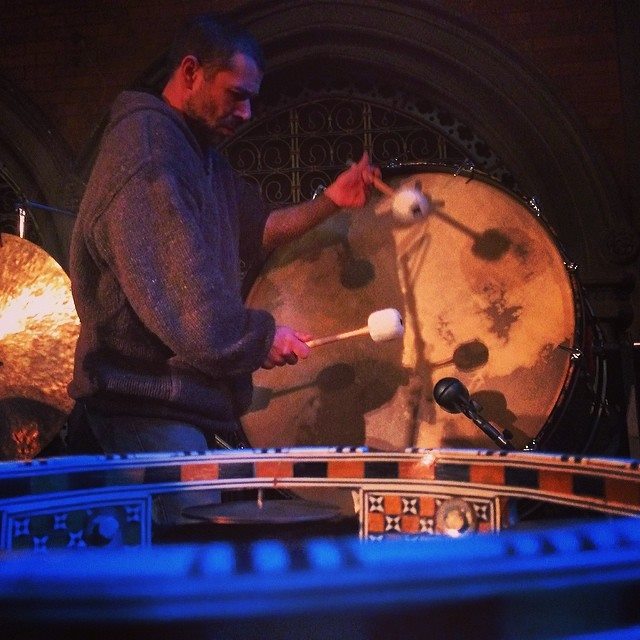
This trauma lies in coming face-to-face with who you are when presented simultaneously with something you want (drugs) and something you fear (withdrawal.) With combined poisons like these acting on us – as in war, famine, or zombie apocalypse – the chemical reaction can reliably be guaranteed to deliver something rather appalling. Some steaming, fizzingly toxic cocktail of weak, cowardly, selfish, narcissistic, dishonest, manipulative, ruthless, shameless, ridiculous, uncool, generally not very nice, etc. Once seen, you cannot unsee. You can try to retreat back into your habit, maintain a blurry and distracted state of mind, and denial about the feelings towards oneself that arise in all but the most shameless sociopath. No, I’m afraid, once you know, you have to act on that knowledge.
What needs to happen is a reset to being a far better person than you were before.
And the search continued…
I encounter a remarkable amount of resistance to this idea of a moral component to recovery, but then there is also a remarkably low recovery rate from chronic addiction. Clearly, something is missing from most approaches that most people are taking to it. Just how difficult is it then? You’ll never get truly reliable statistics, for numerous reasons. You won’t see many double-digits claimed for “enters treatment, remains drug-free one year later.” For context, a noticeably larger percentage of people will make it to the South Pole on foot, dragging everything they need on a sledge. An even larger percentage will succeed in reaching the summit of Everest without supplementary oxygen.
Still, I’m bringing these arguably tenuous comparisons in to give a sense of what kind of territory we are in here. The person who succeeds at reaching such a lofty destination, with so many bleached bones littering the way, will have to find whatever part of them could be called, perhaps, the “heroic.”
I realise that this in itself could sound discouraging, but heroes don’t necessarily have to be big and tough and good with swords and hurting. It was Hobbit-courage that saved Middle Earth. The heroism that keeps on trudging on stumpy little legs, and keeps perfectly still when Black Riders come sniffing around. Self-pity has to go, excuse-making has to go. Fear and fatigue must be mastered, and it will require sacrifice. I only started this LoTR analogy for fun, but I think it’s turning out to be quite apt. You start by sacrificing your familiar hole, and then schlep all the way to the crack of Mount Doom, and finally you have to chuck the precioussss in (and Gollum will most definitely be lurking around).
Method 2: Maintenance Therapy
I quickly decided that none of the medical professionals’ services seemed likely to do the trick. There were basically two ways to go. There was the psycho-pharma approach, in which bad drugs are replaced with good. You end up taking medications for anxiety, depression, insomnia, pain-control, relaxation, etc., in addition to drugs specifically for relieving withdrawal symptoms, rather than say, heroin, which ticks all those boxes simultaneously.
A fistful of pills is obviously equally (very) attractive to an addict and to the pharmaceutical industry, resulting in a tacit conspiracy to pretend that this works. If the flaws in it are not immediately obvious, then a little time spent around detox facilities will reveal them in the form of large numbers of people struggling with addiction to prescription pharmaceuticals. Coming off them can be no less hellish – in fact frequently worse – than traditional “bad’ drugs. I didn’t bother much with this – if I was still going to be an addict, then I knew which drugs I favoured.
Method 3: Talking Therapy
Then there was the counselling/therapy approach, which I spent a bit more time with. I admittedly mainly used it as an opportunity to satisfyingly vent at a kind and patient person about how difficult things were for me. Occasionally they’d slip in some very mild, very tactful attempt to steer me towards some more positive outlook or some modest goal. It was all pleasant, and I left every session feeling a little bit better. But no less likely to go and score drugs. If truth be told, I would generally score immediately afterwards, since I would then be already in town, and I lived a little way out in the countryside, so it made for an efficient round-trip.
I don’t want to sound too critical, because there are many excellent people working in those fields, and usually for pretty scant rewards. Undoubtedly they do a lot of good, but I think mainly in terms of harm reduction, and stabilising the lives of those who are probably never going to be free of their addictions. Being the vast majority, this probably is indeed the most efficient way to allocate state funding in terms of net benefit to society. But these are not waystations on the hero’s lonely path.
Frodo didn’t have a therapist. Okay, he had Gandalf. And Sam. And Aragorn and Legolas and Gimli. And the rest of the Fellowship. Okay, and Elrond. He had plenty of people offering practical help, guidance, encouragement, inspiration, and friendship. But not one of these was interested in discussing why it was difficult and scary for him, and how he felt about that. They knew it was hard – that was bloody obvious, so why dwell on it? It was the Fellowship of the Ring, not the mummyship. There certainly is a time and place for unconditional, non-judgmental acceptance, or whatever. But that’s not when you’re embarking on a quest with orcs on your tail. We don’t need permission to fail, permission to die, or the comforting thought that it’s not really our fault.
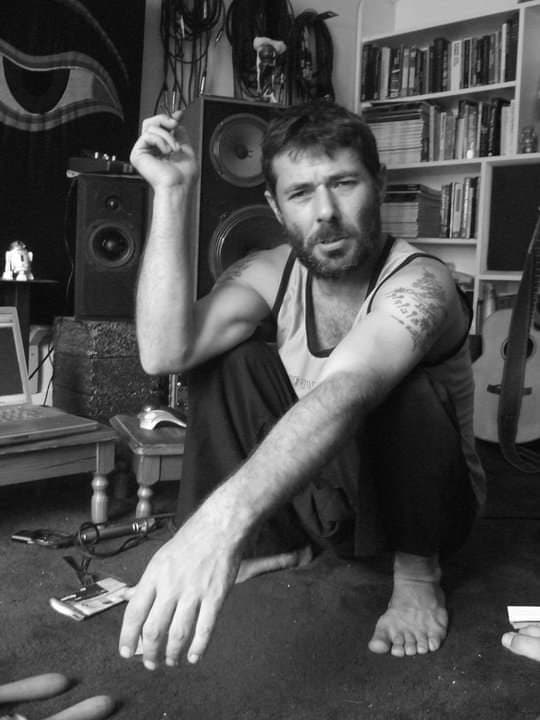
Then there was the 12-step thing. That seemed a bit more on the right lines. It calls itself a “Fellowship” for a start, and it emphasises the moral dimension of recovery. And it is undoubtedly successful – wherever you are in the world, you’re probably not too far from a 12-step meeting. And it is probably true to say that the largest group of people you may meet who have serious drug or alcohol dependency firmly in their past will have taken this route out of it, or some variation thereon. Here though, I had a “God problem.” The 12 steps begin with admitting that we are powerless over drugs, and then asking God or some “higher power” to deliver us.
That really was a non-starter for me. All the doctrines and practices would work better if God was just God, and I wasn’t acquainted with God, and I couldn’t begin with faith. Faith, for me, has to be gradually forged out of lived experience. And I couldn’t begin with powerlessness. That was contrary to my vibe. I had a foreboding that if I said those words, they would feed the demon, whereas I wanted to laugh at the imp. Less poetically – I needed to believe that it wasn’t the strength of addiction, but rather my own weakness that had me trapped – because that was something I stood a chance of doing something about, even if it was initially a more bitter pill to swallow.
The possibility presented itself
Although I hadn’t been impressed by available treatment options via NHS drug services, I had become friendly with one of the counsellors, Mike Sarson, who seemed a bit of a maverick within the system. He told me about a place he had a feeling might appeal to me. There was a residential detox, completely independent and unaffiliated – he said – in Thailand, with treatment offered free of charge to all comers of any nationality. It had been built and was staffed entirely by Buddhist monks and nuns at their monastery, Thamkrabok. He had been there and said it was pretty cool. He told me a few more details, but I’m not sure how much it sank in at that time, partly due to my bio-chemical state, and partly due to how unexpected, outlandish, and frankly unlikely this all sounded.
Then over the next few days, the idea began to take hold, and I suppose this was where that dormant image in my mind of Quang Duc in flames began to exert an influence. Of the little that I knew about Buddhist monks, I knew that they knew a thing or two about dealing with the tough stuff. About going through with their intention despite anything up to, including being on fire. Of course, they would know about getting through the comparatively mild inconvenience of cold turkey.
And then weird serendipity kicked in. Just a few days later, the Saturday Guardian newspaper ran a photo-feature story on the very self-same place. I opened my usual weekend read to a large colour photograph of two chaps standing inside a circle of big, black Buddha statues, having what looked like a most pleasant and cheerful conversation. One late-middle-aged, in the tawny robes of a Thai Forest monk who, the caption said, was Phra Hans, originally from Switzerland, and the other younger, dressed in red pyjamas, who was Stuart from Scotland.
I don’t recall a single thing from the accompanying article, and obviously I had no idea what they were actually talking about, but it looked a lot more interesting than me droning on at some professionally nice person about the predictably petty resentments in my own boring little life, in the faint hope that they might magically fix themselves one day.
“Of course” I thought, (although probably not quite as succinctly and all-at-once-eureka-moment as I’m re-phrasing it here – ) “that’s how it’s done. Drug addiction isn’t defeated by endlessly, half-heartedly wrestling with it, or making yourself the tragic hero in an ego-obsessed melodrama. It’s by putting it down, leaving it behind, to engage with the many far more interesting and important stories there are in life.”
I wanted to be in that circle of Buddhas saying, “But enough about me – what are you doing here, Phra Hans? What’s the story there? How do you spend your days? How’s that going for you?”. I wanted to be in the company of people who – provided there were no issues that might require setting themselves ablaze on any given day – would be good-humoured, big-hearted, interested in others, and the welfare of others. And if there were, then they’d just fill up the gas-can and unflinchingly, unsentimentally get on with it.
Subsequent experience of meeting many monks, and later being one, has taught me that I was setting quite a high bar there for what I thought the average monk should be, but I now had an alignment and a trajectory. I wasn’t just at the bottom of a deep dark pit, wondering whether I should attempt to climb out toward I knew not what. I had an example of human potential, which I had photographic proof was attainable. To mix and mismatch my climbing metaphors – now, getting drug-free no longer looked like the summit of Everest. It was more like base-camp 1 (or 2, maybe, let’s not get too cocky), and I was already looking beyond it. Getting there still seemed daunting, yes, but also exhilarating.
I am convinced that the dismal rate of failure with giving up drugs is not due to the difficulty of the thing per se. It’s fear of succeeding, in case life is now just emptier and harsher without our old familiar comfort, like climbing to base camp one just to be tired, bloody cold, and not have anything very appetising to eat. With no higher goal, no reason to keep climbing, yep – you’d probably just want to scuttle straight back down again ASAP. Put more succinctly – actually I’m not very good at putting things succinctly, so I’ll ask Nietzsche to help out here – “When you have a ‘why,’ you can live any ‘how.'”
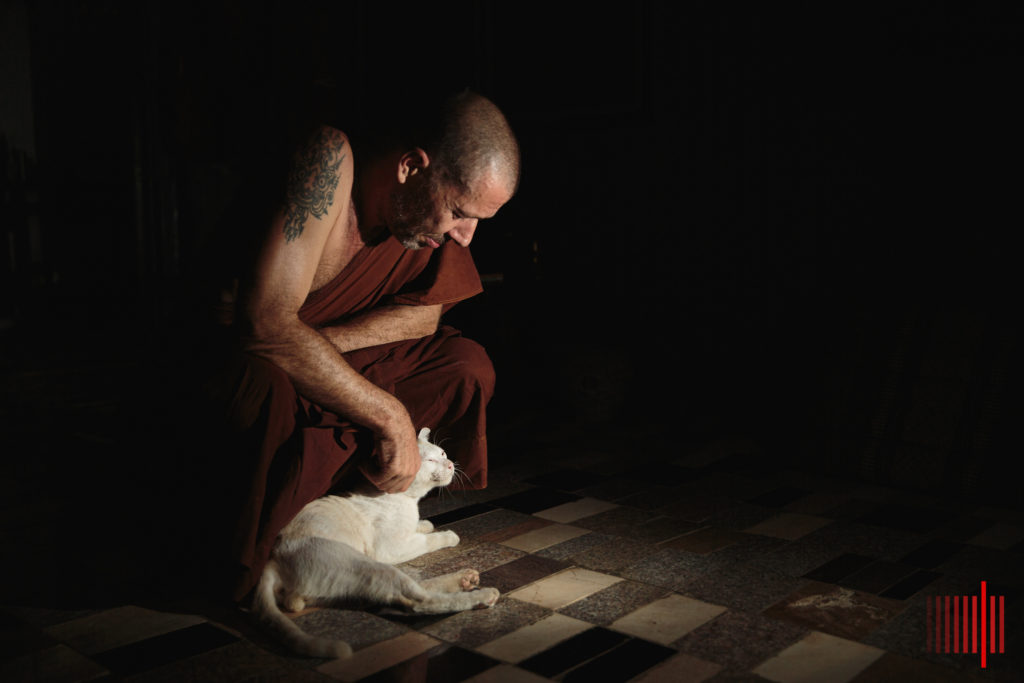
So I went back to see Mike and find out more about this place. It turned out there wasn’t really any application process; you just get in touch with this monk, who turned out to be Phra Hans of the Buddha circle. He asked me only the most rudimentary questions about my condition and history, and said to come as soon as I liked, no waiting list, no schedule. I asked what I should bring with me, and he said “as little as possible,” maybe mosquito repellent (for me), and salami (for him). A week-and-a-half later, I arrived at Thamkrabok.
About the author
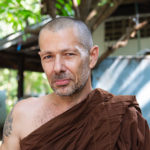
Phra Peter Suparo
History geek. Enjoys sitting around doing as little as possible. Semi-retired bon viveur. Eternal student. Elf-friend. Theoretically in favour of humanity.
